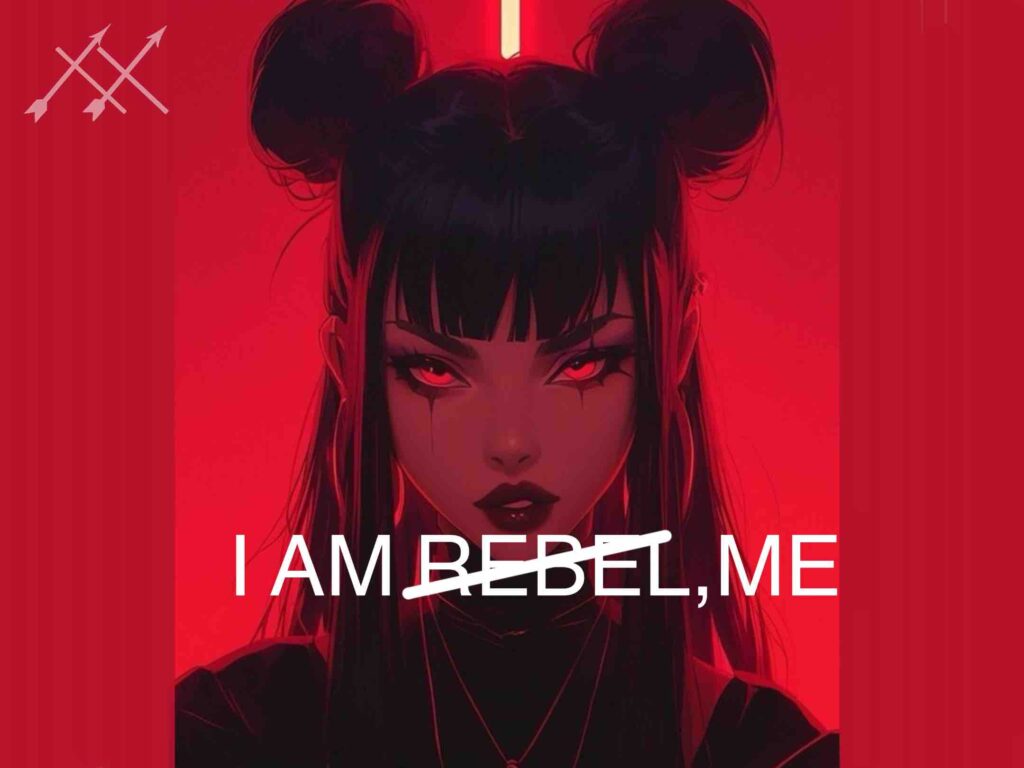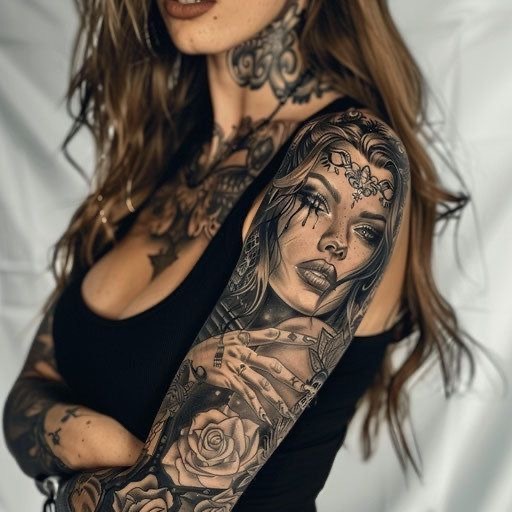Is she a rebel at heart, or is there a hidden depth to her story?

The tattoo world has come a long way, with more people embracing tattoos as a personal form of expression. Unfortunately, the way society views women with tattoos hasn’t kept up. There’s still an unfair stigma that needs to be broken—women with tattoos should be celebrated for their uniqueness, not judged by outdated ideas.

Women make up more than half of the tattoo community, which continues to grow rapidly, yet they are often unfairly labeled as rebels or outcasts. These labels are rooted in outdated stereotypes that continue to haunt women with tattoos. Sadly, society tends to view women with tattoos through a narrow lens—often assuming they are promiscuous, easy, or somehow “wild.” This mindset is a direct result of the way women’s bodies have been sexualized throughout history.
The issue goes deeper than just tattoos. Society has set unrealistic and rigid standards for women, dictating how they should look, act, and present themselves. When women don’t fit into this narrow mold, they’re often judged or considered unattractive. This societal expectation places undue pressure on women to conform, leading to unnecessary judgment. Tattoos, in particular, are often seen as symbols of masculinity—associated with strength and rebellion—while designs that are deemed “feminine” (like butterflies or dolphins) are more socially accepted. This creates a false narrative that tattoos on women must be subtle or delicate, further reinforcing gendered stereotypes.
The issue goes deeper than just tattoos. Society has set unrealistic and rigid standards for women, dictating how they should look, act, and present themselves. When women don’t fit into this narrow mold, they’re often judged or considered unattractive. This societal expectation places undue pressure on women to conform, leading to unnecessary judgment. Tattoos, in particular, are often seen as symbols of masculinity—associated with strength and rebellion—while designs that are deemed “feminine” (like butterflies or dolphins) are more socially accepted. This creates a false narrative that tattoos on women must be subtle or delicate, further reinforcing gendered stereotypes.

The idea that women with tattoos are rebellious, masculine, or sexually promiscuous is outdated. Today, many women get tattoos to express their femininity, but this is often misunderstood. Studies suggest that men find women with tattoos less attractive and even associate them with heavy drinking. Isn’t that ridiculous? Can we really judge someone just by how they look?
Women get tattoos for all kinds of reasons, usually because they have personal meaning. It might be a special memory, a unique story, or simply a conversation starter—if only people stopped making assumptions and took time to understand their significance. Society is to blame for sticking to these old stereotypes. Yes, some women might get tattoos for attention, like the infamous “tramp stamp,” but does that mean we should judge all women by the actions of a few?
Just like men, women get tattoos to express themselves in ways that go beyond sex or masculinity. These negative views are holding women back from fully embracing their self-expression. Who are we to judge? Tattoos on women have been around for centuries. In ancient cultures, tattoos were a rite of passage for women. If tattoos were once widely accepted and even celebrated, why has that changed? Instead of seeing women with tattoos as confident and brave, we’ve let society label them as rebels. Why should we let stereotypes define them?
Women get tattoos for all kinds of reasons, usually because they have personal meaning. It might be a special memory, a unique story, or simply a conversation starter—if only people stopped making assumptions and took time to understand their significance. Society is to blame for sticking to these old stereotypes. Yes, some women might get tattoos for attention, like the infamous “tramp stamp,” but does that mean we should judge all women by the actions of a few?
Just like men, women get tattoos to express themselves in ways that go beyond sex or masculinity. These negative views are holding women back from fully embracing their self-expression. Who are we to judge? Tattoos on women have been around for centuries. In ancient cultures, tattoos were a rite of passage for women. If tattoos were once widely accepted and even celebrated, why has that changed? Instead of seeing women with tattoos as confident and brave, we’ve let society label them as rebels. Why should we let stereotypes define them?


